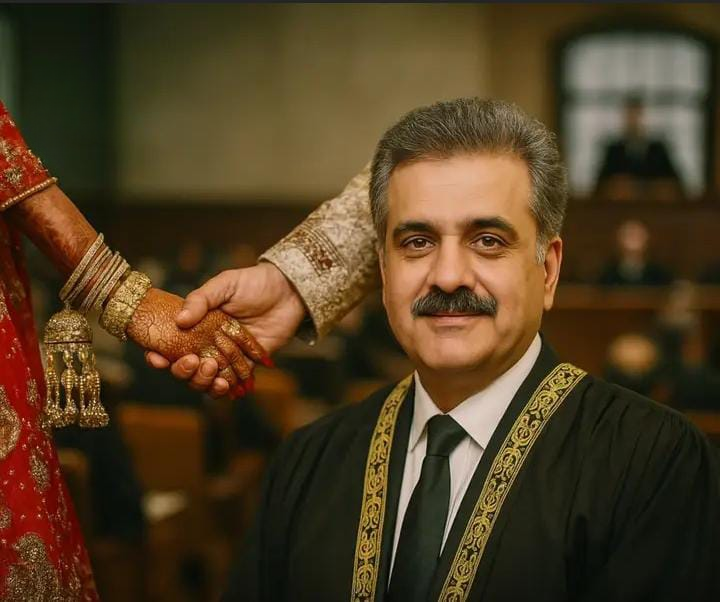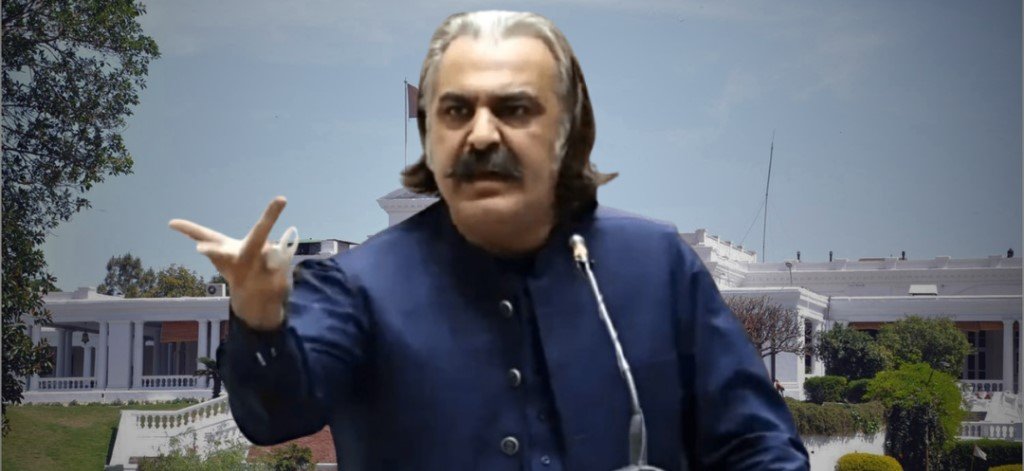In a significant statement that has sparked nationwide debate, the CJ Opposes Legal Action Against Love Marriages Speaking during a court hearing, the country’s top judge highlighted that such actions are not only against personal freedoms but also harmful to the social fabric, as they create unnecessary conflict and criminalize personal choice.
The remarks came during the hearing of a case involving a young couple who had married against their families’ wishes. The court was informed that the bride’s family had registered a police case against the groom, accusing him of kidnapping and coercion. However, the woman testified in court that she had married willingly and without any force.
The Chief Justice took a firm stance, stating that love marriages are a personal matter between two consenting adults and should not be treated as a crime. He emphasized that Pakistan’s Constitution and laws protect the right of every adult citizen to make their own marriage decisions, as long as both individuals are of legal age and give their consent freely.
The Chief Justice pointed out that the tradition of registering criminal cases—especially under kidnapping or abduction charges—against men in love marriages is an abuse of the legal system. He noted that such tactics are often used by families to forcefully separate couples or to punish them for defying traditional norms. According to him, this misuse of the law not only wastes judicial resources but also causes mental and emotional harm to the couple involved. x
The judge further observed that many such cases end up crowding the courts and diverting attention from more serious criminal matters. “We should not interfere in the private lives of adults who have acted within the law,” he said. “The courts must ensure that no one is wrongfully harassed simply for exercising their right to choose their life partner.”
The statement has resonated with human rights activists, lawyers, and civil society members, who see it as a much-needed step toward protecting individual freedoms. Many pointed out that Pakistan still faces challenges when it comes to acceptance of love marriages, especially in rural areas and conservative families. In some cases, couples face threats of violence, disownment, or even honor killings. The Chief Justice’s comments, they believe, send a strong message against such practices and promote tolerance and understanding.
However, the remarks have also drawn criticism from some traditionalists and community leaders who argue that family consent remains an important part of cultural and social norms. They believe that love marriages can lead to disputes between families and disrupt the established order. Despite these concerns, legal experts agree that personal liberty must take precedence over societal pressure when it comes to marriage.
The Chief Justice’s remarks also shed light on the broader need for reform in how police handle such cases. He urged law enforcement agencies to carefully investigate complaints and verify the facts before making arrests. He stressed that a consenting adult woman’s statement should carry full legal weight and be enough to dismiss allegations of kidnapping or coercion, unless credible evidence suggests otherwise.
Over the years, numerous cases have emerged where young couples have been forced to go into hiding to avoid harassment or arrest. In many instances, the legal process drags on for months or years, causing unnecessary suffering. The Chief Justice’s intervention could set a precedent for handling such matters more fairly and swiftly.
Social media has been buzzing with discussions on the topic since the statement was made public. Many users have welcomed the Chief Justice’s views, calling them a progressive step in protecting personal freedoms. Others have shared personal stories of how legal harassment has been used to break apart consenting couples.
Legal analysts suggest that while the Chief Justice’s statement holds moral and symbolic value, it also has practical implications. It could influence lower courts and police officials to act more cautiously in similar cases. Moreover, it may encourage legislators to consider clearer laws that safeguard the rights of couples who marry by choice. READ NEXT https://elevenpakistan.com/us-shows-interest-pakistan-copper-reserves/
Pakistan’s legal system already recognizes the right of adult men and women to marry without parental consent, but societal attitudes often lag behind the law. In many communities, parents still expect to have the final say in marriage decisions, and defiance can lead to severe consequences. Activists hope that strong statements from top judicial figures will help bridge the gap between law and tradition.
In conclusion, the Chief Justice’s opposition to legal action against love marriages is more than just a comment—it’s a statement about the kind of society Pakistan should strive to become. One where personal freedoms are respected, where the law is not misused for personal revenge, and where love, when consensual and lawful, is not treated as a crime. While challenges remain in changing deep-rooted cultural mindsets, the judiciary’s voice adds a powerful layer of protection for those who dare to choose love over tradition.
READ MORE



